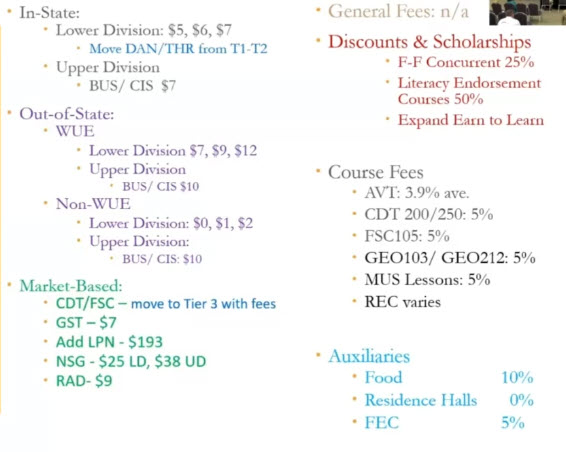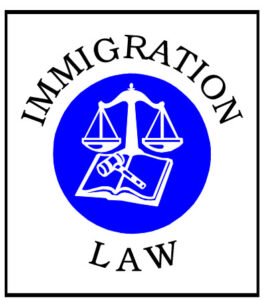Program begun in 2019 provides full reimbursement for tuition if degree completed in two years
Yavapai Community College announced in a February press release that its Promise Program has provided over $1 million in tuition reimbursements since 2019. This initiative has helped more than 600 students graduate debt-free of tuition.
The Promise Program, based on the Tennessee Promise model, provides tuition reimbursement to eligible high school graduates and adult learners in Yavapai County. Students who complete their associate degrees within two years receive full reimbursement for tuition costs, allowing them to pursue their educational goals without incurring debt for tuition.
The program, launched in 2019 for high school graduates, expanded in 2022 to include the Workforce Promise. This addition offers tuition reimbursement for adult students pursuing one of 16 workforce-focused degrees in fields like nursing, radiology, and elementary education.
Yavapai Community College funds the Promise Program from external grants, which it says is intended to ensure its sustainability and independence. However, it provided no details about the grantors.
 COMMENTARY: The actions by the Trump administration’s newly created Department of Government Efficiency (DOGE) may have a significant impact on the operations of Yavapai Community College. There is concern because DOGE is already taking away millions of dollars in existing grants and contracts from various educational institutions. In addition to this concern, the Trump administration has mandated that educational institutions eliminate anything that directly or indirectly might be linked to what are commonly called “Diversity, Equity and Inclusion (DEI)” programs or projects.
COMMENTARY: The actions by the Trump administration’s newly created Department of Government Efficiency (DOGE) may have a significant impact on the operations of Yavapai Community College. There is concern because DOGE is already taking away millions of dollars in existing grants and contracts from various educational institutions. In addition to this concern, the Trump administration has mandated that educational institutions eliminate anything that directly or indirectly might be linked to what are commonly called “Diversity, Equity and Inclusion (DEI)” programs or projects. Tuition increases at Yavapai Community College are annually approved by the District Governing Board with little significant questioning, discussion, or commentary. The meeting on October 29, concerning the requested tuition increase for the 2025-2026 academic year, was no exception. It mirrored last year’s presentation of the topic, which lasted just eight minutes. This year, the presentation and Board vote took only twelve minutes of the meeting.
Tuition increases at Yavapai Community College are annually approved by the District Governing Board with little significant questioning, discussion, or commentary. The meeting on October 29, concerning the requested tuition increase for the 2025-2026 academic year, was no exception. It mirrored last year’s presentation of the topic, which lasted just eight minutes. This year, the presentation and Board vote took only twelve minutes of the meeting. Yavapai Community College initiated the “Promise Scholarship Program” in 2019. This program reimburses students for any direct tuition costs not covered by federal, state, third-party, or college grants upon graduation. To qualify, students must complete their education within seven semesters.
Yavapai Community College initiated the “Promise Scholarship Program” in 2019. This program reimburses students for any direct tuition costs not covered by federal, state, third-party, or college grants upon graduation. To qualify, students must complete their education within seven semesters. Tuition increases at Yavapai Community College are annually approved by the District Governing Board with little significant questioning or commentary. The meeting on November 26, concerning the requested tuition increase for the 2024-2025 academic year, was no exception.
Tuition increases at Yavapai Community College are annually approved by the District Governing Board with little significant questioning or commentary. The meeting on November 26, concerning the requested tuition increase for the 2024-2025 academic year, was no exception.
 Yavapai Community College president Dr. Lisa Rhine has announced a tuition waiver update for faculty and staff. It was not clear whether the benefit is immediately available or faculty and staff must wait until spring 2024.
Yavapai Community College president Dr. Lisa Rhine has announced a tuition waiver update for faculty and staff. It was not clear whether the benefit is immediately available or faculty and staff must wait until spring 2024. It is of particular importance to “Dreamers.” These are persons who entered the United States without legal permission as children. Many of them came from Mexico and other Latin American countries and consider themselves American, having grown up and possibly only speaking English in the United States. Some may not have even been aware of their unauthorized immigrant status until they were older and unable to obtain a driver’s license or financial aid for college due to their lack of a Social Security number.
It is of particular importance to “Dreamers.” These are persons who entered the United States without legal permission as children. Many of them came from Mexico and other Latin American countries and consider themselves American, having grown up and possibly only speaking English in the United States. Some may not have even been aware of their unauthorized immigrant status until they were older and unable to obtain a driver’s license or financial aid for college due to their lack of a Social Security number. Tuition and fees are one of the sources for paying off revenue bonds that are issued without taxpayer approval. These bonds, for example, were used to help finance renovation of student housing on the Prescott Campus.
Tuition and fees are one of the sources for paying off revenue bonds that are issued without taxpayer approval. These bonds, for example, were used to help finance renovation of student housing on the Prescott Campus. collected primarily from veterans who the Blog has been led to believe make up more than a majority of students taking the training.
collected primarily from veterans who the Blog has been led to believe make up more than a majority of students taking the training. In February 2019 Yavapai Community College announced that it had initiated a tuition free scholarship program for Yavapai County residents beginning in the fall 2019. In theory, every high school graduate seeking a two-year degree in Yavapai County could attend the Community College tuition free. The College goals driving what it labeled the Promise Scholarship Program were twofold: First, the College wanted to increase its market for college bound students. Second, it wanted to encourage students to complete and obtain a degree in a two-year period. (See Blog of February 21, 2019).
In February 2019 Yavapai Community College announced that it had initiated a tuition free scholarship program for Yavapai County residents beginning in the fall 2019. In theory, every high school graduate seeking a two-year degree in Yavapai County could attend the Community College tuition free. The College goals driving what it labeled the Promise Scholarship Program were twofold: First, the College wanted to increase its market for college bound students. Second, it wanted to encourage students to complete and obtain a degree in a two-year period. (See Blog of February 21, 2019).